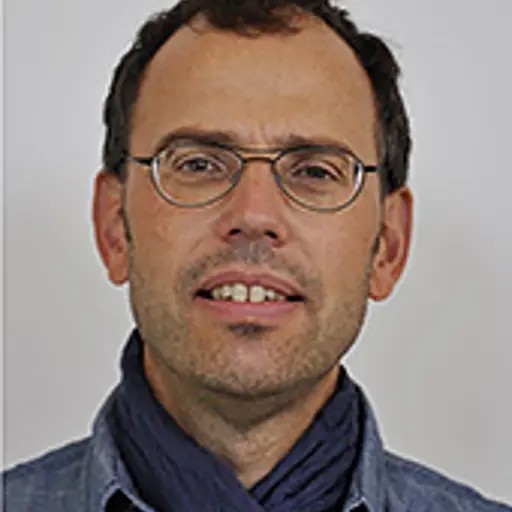Course syllabus adopted 2023-02-19 by Head of Programme (or corresponding).
Overview
- Swedish nameDesign och produktutveckling för uthållig utveckling
- CodePPU030
- Credits7.5 Credits
- OwnerTIDSL
- Education cycleFirst-cycle
- Main field of studyMechanical Engineering, Industrial Design Engineering
- ThemeEnvironment 7.5 c
- DepartmentINDUSTRIAL AND MATERIALS SCIENCE
- GradingUG - Pass, Fail
Course round 1
- Teaching language Swedish
- Application code 66112
- Block schedule
- Open for exchange studentsNo
- Only students with the course round in the programme overview.
Credit distribution
Module | Sp1 | Sp2 | Sp3 | Sp4 | Summer | Not Sp | Examination dates |
|---|---|---|---|---|---|---|---|
| 0105 Written and oral assignments 7.5 c Grading: UG | 7.5 c |
In programmes
Examiner
 Jonas Tuveson
Jonas Tuveson- Lecturer, Design & Human Factors, Industrial and Materials Science
Eligibility
General entry requirements for bachelor's level (first cycle)Applicants enrolled in a programme at Chalmers where the course is included in the study programme are exempted from fulfilling the requirements above.
Specific entry requirements
The same as for the programme that owns the course.Applicants enrolled in a programme at Chalmers where the course is included in the study programme are exempted from fulfilling the requirements above.
Course specific prerequisites
The course IMS040 Ergonomics, or equivalent knowledge.Aim
The course aims to provide an understanding of the complex contexts and relationships that affect the sustainability of adaptation, of products (and services), from a life cycle perspective, and to show the engineer's opportunities to influence at different levels and areas. Furthermore, the course aims to give an overview of different methods and tools applied in sustainable product development from a systems perspective and the different steps of the traditional design process. A central premise is that the different parts will provide knowledge and practice skills to break down complex sustainability issues into manageable sub-problems that are within the engineer's areas of influence.Learning outcomes (after completion of the course the student should be able to)
- explain the concept of sustainable development based on the dimensions; social, ecological and economic sustainability with different perspectives of critical sustainability problems in the world, connected to, for example, population growth, poverty, climate change, ecosystem services and more. And demonstrate an understanding of the complexities that affect whether human needs can be met within environmental constraints.
- manage and organize major global issues in sustainable development by identifying and demarcate into manageable sub-problems based on the engineer's intended impact area.
- from a systems perspective, perform qualitative sustainability analyzes at the product level and propose measures for a product.
- describe some different drivers and barriers for corporate / organizational level to improve the products and services impact on sustainability.
- describe the content and use of current methods and tools for strategic sustainability initiatives at different levels.
- describe how environmental impact assessment is carried out in relation to sustainable development.
- describe how attitudes, norms and habits can prevent or driving force for sustainable development at the individual, organizational and societal levels.
- apply problem solving, critical and creative thinking in groups with a view to reconciling industrial design with social aspects, ecology and economy of design/product development process.
- reflect on their professional capacity and their professional responsibilities, as well as their civic role in relation to sustainable development and its different dimensions.
- distinguish facts from values, identify ethical dilemmas and be able to apply and discuss the ethical balancing principles, and argue for different aspects and positions in the context of sustainable production.
- have demonstrated an understanding of the management of complex sustainability problems in prioritizing actions both at the system level and the level of detail to demonstrate a holistic approach.
Content
The course is divided into three main parallel tracks that focus on sustainable development from different perspectives and at different levels; system/social, business and individual levels. The parallel tracks are divided into four stages:- Complexity and relationships. It discusses general sustainability issues (wicked problems, for example, population growth, climate change, etc.). Important problems on the human impact on ecosystems are defined.
- What we can do. Sustainable development strategies at different levels and priorities. Key drivers and barriers for different strategies, discussion of conflicts between actors and levels.
- How we can do. Practical methods/tools to improve the sustainability performance of products (and services). Example. Natural Step four system conditions, Cradle to Cradle and life cycle assessment (screening) and other.
- How it got. Here, a larger application project carried out as group work during the course is reported. In the project, methods and tools that have been presented during the course is applied. Although an individual change data reported here. The course is summarized and summed up.
Organisation
The teaching is conducted in theory sections with lectures and exercises in the form of laboratory sessions (workshops) as well as seminars and supervisions, approximately 60 hours. Literature studies comprise approximately 30 hours, individual change assignment approximately 25 hours and joint project work approximately 85 hours per student. A total of about 200 working hours.Literature
The reading list is "Okala Practitioner-Integrating Ecological Design" by P. White, L. St.Pierre, S. Belletire.
Other course literature is listed on the course's homepage before the course starts.
Additional material such as supplementary articles etc. is also made available there.
Examination including compulsory elements
- Individual examination in the form of assignments / assignments as well as written examinations may occur, seminar/seminar assignments and laboratory work (workshops) / exercises and project.
- Pass is required for all parts included.
- Mandatory attendance at seminars, presentations of tasks and projects, at least 80% on lectures, supervisions and laboratory work (workshops) with active participation in all above mentioned occations.
- Grading scale Pass/Fail (G/ U)
The course examiner may assess individual students in other ways than what is stated above if there are special reasons for doing so, for example if a student has a decision from Chalmers about disability study support.